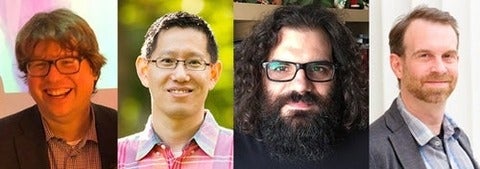Five computer science and software engineering students named 2020 Schulich Leaders
More than doubling last year’s recipient pool, incoming Waterloo students are recognized with $80,000 and $100,000 Schulich Scholarships
A group of exceptionally talented incoming students are making their way to Waterloo with a prestigious scholarship in tow.
Thanks to a $100+ million investment by entrepreneur and philanthropist Seymour Schulich, Waterloo has more than doubled its recipient pool from previous years, allowing selected students pursuing STEM programs to begin their post-secondary careers with an extra $80,000 or $100,000.




